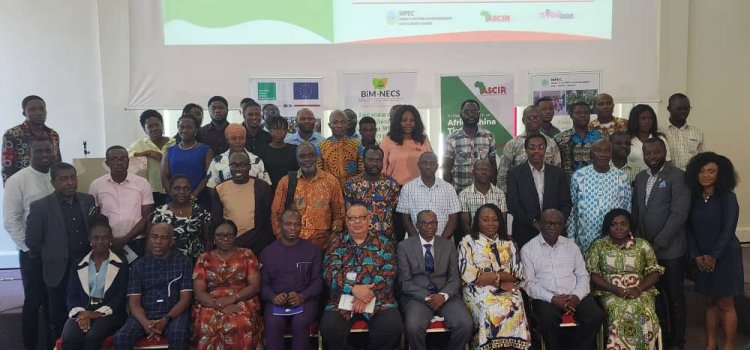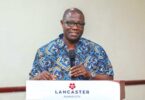
Story by: Ishmael Barfi
The Ghanaian media have been urged to intensify it’s public education on major environmental issues contributing to climate change and degradation of natural resources in the country.
The call was made at the maiden Biennial forum on Natural Resources, Environment, Climate Change and Science (Bim-NES forum) which was held on Monday June 12, 2023 in Accra.
The forum which was organised by the Media Platform On Environment And Climate Change (MPEC), Afro-Sino Centre of International Relations (ASCIR) in collaboration with The Steminists Foundation Ghana was under the theme; “Strengthening media focus on natural resources, environment, climate and science: challenges, prospect and way forward,” brought together journalists from print media, online outlets, radio and television stations within capital city, Accra.
And also aimed at sensitizing and encouraging media practitioners to have a keen interest in issues relating to natural resources, environment, climate, and science as well as report more on these issues and the numerous challenges, hence creating awareness and quick implementations of policies geared to the sustainability of the natural resources.
Speaking during a panel discussion, the Regional Page Editor of Graphic Communications Group Limited, Mr. Edmund Smith-Asante appealed to journalists to always get their real and hard facts right before any write-ups, especially on environmental issues such as climate change, pollution, and environmental degradation among others.
This he noted will aid policy makers and state environmental regulatory institutions in tackling the numerous environmental and climate change issues in the society.
Meanwhile, Mr. Edmund Smith-Asante emphasized the urgent need for Journalism training institutions in the country to introduce a curriculum that will give in-depth training on environmental reporting.
This he believes will boost the interest and enhance the skills and knowledge base of journalists in the environment, natural resources, and science sector.
On his part, the General Secretary of the Ghana Journalist Association, (GJA), Mr. Yeboah called on journalists to continue to play the watchdog role by monitoring state institutions and agencies as well as other stakeholders in the environmental, and climate change sector to ensure policies and programs implemented are having a meaningful impact on the society and aiding the country to achieve the Sustainable Development Goals (SDGs).
He also reiterated the need to protect the privacy and dignity of individuals who provides them vital and real facts to avoid any victimization as they provide relevant, real, and factual information in their quest to also protect the environment, hence the natural resources.
He therefore emphasized that, it is the duty of journalists to produce accurate, reliable, and unbiased reports hence their sources of information must always be credible and factual.
“Journalists must be truthful in their reportage, acknowledging the numerous human activities that are having a dire impact on natural resources, environment, and science.”
Adding, “Journalists should strive to balance the interests of the public with the interests of individuals they report on”.
Media firms he urged should be willing and ready to provide the needed assistance to their reporters who shows keen interest in environmental reportage.
This he noted will aid them to gather the relevant information on the field of work to present a vivid story that would champion the cause of safeguarding the environment, and natural resources in the country as well as affecting decision making hence impactful in addressing the menace.
For her, the Editor of Amansan Television (A TV), Kukua Snead-Michaels, the low reportage on environmental issues is a result of a lack of support from institutions.
And also the absence of an award scheme to acknowledge the works and contributions of journalists that report intensively on environmental issues in the country.
To her, lack of motivation in the area of environmental reporting is one of the contributory factors as to why media practitioners especially the young ones show no interest.
Though journalism should be a ‘calling’, she admitted that there is a need to provide essential financial support that would cushion journalists showing keen interest in environmental reportage believing this will scale up the numbers of journalists in the environment, climate change, and science space as collectively, a solution is provided.
Delivering the key note address, Professor Christopher Gordon, founder and former director of the Institute of Environment & Sanitation Studies at the University of Ghana explained that, the media’s role In shaping public discourse and policy cannot overemphasize the essence of tomorrow.
According to him, it is the need to build the media’s capacity to investigate, report and bring forth these critical issues, enabling journalists to delve deeper in the complexities of natural resources management, and environmental sustainability.
“The process is a vital platform for genomics, scientists, policymakers, environmental advocates, and the public to share knowledge and engaging in thought provoking discussion adding “Our goal is to inspire a transformative change in the collegiate approach to different budgets, transitioning from reactive reporting to a more proactive solution and oriented journalism.
Source: www.thenewindependentonline.com








